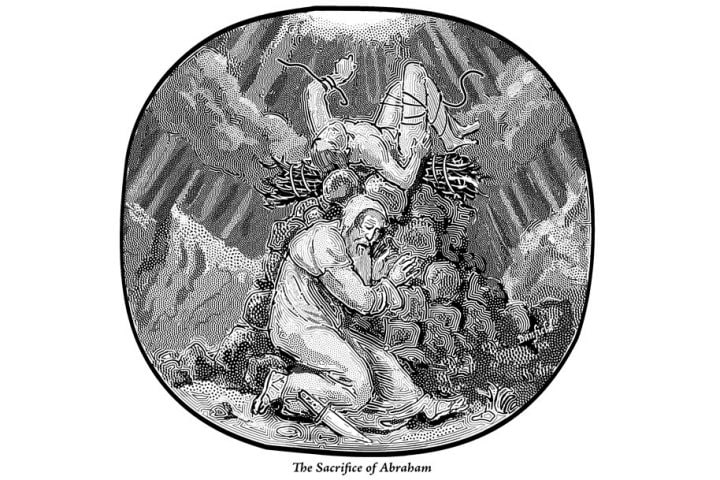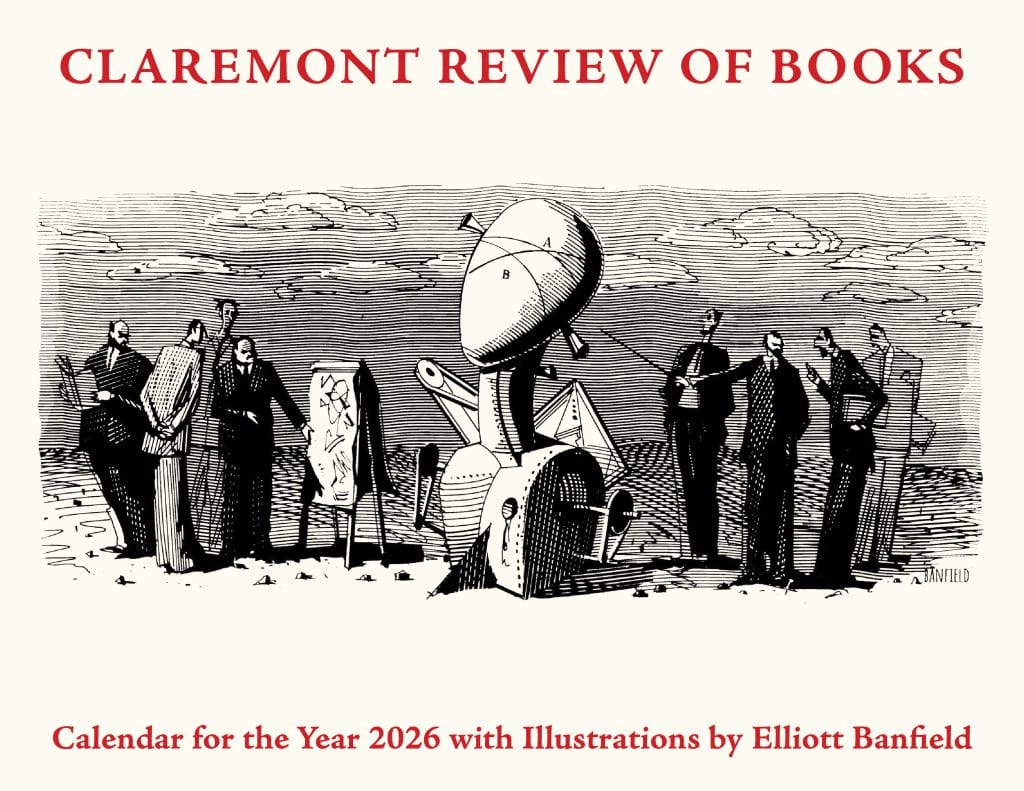Born to Run?
William Voegeli’s essay “Liberty, Equality, Reality” (Fall 2019), was an interesting contribution to debate on nature and nurture in physical and intellectual attributes. In general, his discussion of my most recent book, Skin Deep, was fair, but on two points I dispute his emphasis.
First, he says I offer a “grudging acknowledgement” that population genetics can play a role in athletic achievement. There was nothing grudging about it (although I do show that these claims are often off the mark). I included the chapter to show that a wide range of physical attributes and liabilities are influenced by population genetics, but that this doesn’t apply to intelligence, and I explain why. In addition to my discussion of athletic genes, I devote a further chapter to discussing how genetic markers can help us understand the historical movement of populations (citing David Reich’s work favorably) and I also discuss diseases that differ between populations in considerable detail.
Second, he says that “Evans goes so far as to suggest that we should stop using the word ‘intelligence’ altogether.” I said no such thing. What I suggested in the final chapter was that I.Q. tests do not measure innate intelligence but rather abstract reasoning and should rather be called aptitude tests. I spend several chapters explaining that although individual genetic inheritance plays some role in performance in I.Q. tests, this has been overstated (not least by misinterpretation of twin studies), and that at the population level different averages have nothing to do with genetics (indicated by the rise in average I.Q.s within populations—I cite Ashkenazi and Mizrahi Jews, Chinese Americans, and Kenyans as my prime examples). But, for the record, I have no problem with the word “intelligence.”
Dr. Gavin Evans
Birkbeck, University of London
England
William Voegeli replies:
To take his second point first, I thank Dr. Evans for correcting the record. When Skin Deep suggests that we “remove the word ‘intelligence’ altogether,” it means altogether from the realm of testing for cognitive abilities, not altogether from human discourse. I should have made that distinction clearer, especially since Skin Deep begins its summary of I.Q. by stating that “Intelligence is real but hard to pin down.”
Something can be real, of course, and also hard but not impossible to pin down. Thus, there could be tests that measure intelligence in ways that, by Evans’s standards, merit continued use of the term. He does not believe such tests exist now, which is a position widely held (and denied) in the vigorously contested, highly arcane debate over what intelligence is and how to quantify it.
As to the first point, on genetically based differences in athletic ability at the group level, such as the remarkable success of Kalenjin tribe members in long-distance running: Dr. Evans is the world’s foremost authority on his own thoughts and feelings, as is any member of the human race. I’m glad to know that a chapter I read as “grudging” was not so regarded by its author.
I do note that the distillation he offers here—“a wide range of physical attributes and liabilities are influenced by population genetics”—makes Angela Saini’s review of Skin Deep in Nature magazine look even worse. Specifically, this clarification contradicts her claim that Evans “demolishes the idea of genetic explanations for any region’s sporting achievements.” But if Skin Deep affirms rather than demolishes such claims, then it perpetuates rather than refutes what Saini calls “lazy biological essentialism, heavily doped with racism.”
Interestingly, however, Nature’s website gives no evidence of a letter from Dr. Evans challenging Saini’s characterization of his book. To the contrary, on his Twitter feed Evans provides a link to what he calls Saini’s “[g]ood review” without further comment. Evans also calls attention to his publisher’s roster of quotes from favorable reviews of Skin Deep, in which Saini’s figures prominently.
There may be an innocent, logical explanation for why Evans argues that genetics endows different groups with different kinds and degrees of athletic ability, but does not object if people believe he holds the opposite view, and praise him for doing so. Absent that explanation, if “grudging” was not the right word to characterize his discussion of genetics and athletics, “forthright” also appears inapplicable.
Baptizing Aristotle
My book Aristotle’s Revenge is about the philosophy of science, and brings into dialogue ideas and arguments on the subject drawn from both the broad Aristotelian-Scholastic tradition and contemporary analytic philosophy. It treats a wide variety of issues, including: the early modern dispute between the late Scholastics and proponents of the mechanical world picture, the embodied nature of perception and cognition, the dispute in the philosophy of time between between the A-theory and the B-theory, the compatibility of a presentist theory of time with relativity theory, the philosophy of quantum mechanics, reductionism in chemistry and biology, the use of computational notions in natural science, the distinction between primary and secondary qualities, the compatibility of evolution with biological essentialism, and much else along those lines.
In a review of four dense pages with three columns per page (“Christian Science?,” Fall 2019), J. Eric Wise manages, astoundingly, to say almost nothing about any of this. Instead, he goes on at meandering length about (of all things) Machiavelli, Leo Strauss, Harry Jaffa, ethics and politics, and other matters that may be of interest in themselves but have absolutely nothing to do with my book. It is possibly the strangest book review I have ever read—one that is really a report on what was apparently going through Wise’s mind as he absentmindedly skimmed my book, rather than anything that was actually there on the page. Wise seems to practice a cartoon version of Straussianism that is so busy trying to read between the lines that it fails to read the lines themselves.
Equally bizarre is Wise’s characterization of my position as “Christian science.” In reality, there is not a single argument in my book that presupposes any Christian theological premises. The issue doesn’t even come up, but exists only in Wise’s imagination. His rationale seems to be that some of the writers I discuss are Scholastics, and Scholastics happened to be Christians. But the specific ideas and arguments I borrow from these writers have to do with matters of science and philosophy rather than theology. After all, Scholastic writers have a lot to say about topics other than Christian theology.
Accordingly, characterizing my position as “Christian science” on these grounds is analogous to the Nazis characterizing relativity as “Jewish physics,” on the grounds that Einstein was Jewish. It also overlooks the fact that the bulk of the argumentation in my book appeals to work in contemporary analytic philosophy being done by secular thinkers, many of whom are, if anything, hostile to Christian theology, and certainly uninterested in it.
I don’t have any problem with people raising criticisms of what I actually wrote. But it is outrageous for Wise to mislead CRB’s readers by pretending that my book bears the remotest resemblance to his logorrheic straw man.
Edward Feser
Pasadena City College
Pasadena, CA
J. Eric Wise replies:
Edward Feser offers a blunt response to my review of Aristotle’s Revenge. He says it is the “strangest book review I have ever read,” I “absentmindedly skimmed” his book, I wrote a “bizarre” and a “cartoon version of Straussianism,” which is “outrageous.” He’ll excuse me, then, if I am blunt myself.
There would be no point in detailing the many recondite topics discussed in Aristotle’s Revenge for a general political interest review. I did remark on time and space extensively, and I did offer a spoiler: Feser’s arguments tend to land on some version of Scholastic opinion.
That’s the rub. Feser most strongly objects to the title of the review, “Christian Science?” He says my rationale is that some of his writers are Scholastics and Scholastics happen to be Christians in the same way that Einstein happened to be Jewish. In a twist, Feser compares my review implicitly to anti-Semitic Nazi attacks on Jewish physicists.
As an argument, this does not pass the giggle test. No serious person believes Scholastics, living or dead, are or were engaged in the secular study of nature in the manner in which Einstein studied electrodynamics.
But laughter is not rebuttal, so here are a few quotes from Feser’s account of the metaphysical foundations of physical and biological science which might lead a reader to question the secularity of Aristotle’s Revenge:
“An angelic intellect or a Cartesian res cogitans, being incorporeal, would not be a compound of form and matter, but it would still be a compound of actuality and potentiality (insofar as God would have to create it and thus actualize what would otherwise be its merely potential existence).” (page 22)
“An angel, as Aquinas conceives of it, is a creature of pure intellect, a mind without a body. It has neither a brain nor sense organs. To know what it knows, it neither relies on sensory experience nor reasons from premises to conclusions. Its knowledge is built in when it comes into being, and it knows what it knows all at once, grasping propositions and their implications in a single act rather than in successive mental acts.” (page 85)
“[The Cartesian dualist] owes us an account of how a res cogitans could have perceptual experiences and discursive cognition and still be a human mind rather than an angelic intellect.” (page 93)
“To see this, consider the ways in which, for Aquinas, an Angelic intellect differs in its mode of knowledge from a human intellect.” (page 135)
Feser’s opinions are speckled with such Scholastic concepts, from his bibliography to his discussions of prime matter (a Scholastic invention which makes an appearance no less than 13 times in Aristotle’s Revenge). Feser is a Scholastic and Christian scholar. I have no objection to that; however, for purposes of Aristotle’s Revenge he wishes to suppress this fact. He hides his candle, but he does so under a spaghetti strainer. The unfortunate effect of this is to make his arguments on important topics less, not more, persuasive.
Feser peddles his version of neo-Scholasticism as Aristotle’s philosophy of nature, even while admitting that Aristotle had no such concept (he says in the opening pages of the book that “there was no distinction drawn between these fields of study in Aristotle’s day or for centuries thereafter”).
Of greater concern is Feser’s definition of philosophy of nature itself. According to him, philosophy of nature is a science of what the possible empirical and material world must be like. Feser’s philosophy of nature can rule out certain results of empirical science. In other words, experience must conform to doctrine, rather than the other way around. Indeed, he writes in Aristotle’s Revenge, “To be sure, I would not for a moment concede that philosophy must always yield to what empirical science purports to show.” The Inquisition imprisoned Galileo in 1633 on the basis of this sort of thinking.
Aristotle maintained that with a true view the data harmonize. Feser turns this into the data must harmonize with an a priori true view. As I wrote in my review, “In the final analysis, the schoolmen’s Aristotelianism is changed from a flexible account of the whole consistent with common sense and empirical fact…to a highly doctrinal system that derives its truth from divine authority.”
Whatever Feser has written it is not Aristotle, and the good that he has done in assembling a vast array of arguments on subjects, ranging from how the yellow is in the banana to what modern physics says about the real existence of space, is unlikely to be persuasive outside of orthodox Christian circles.






